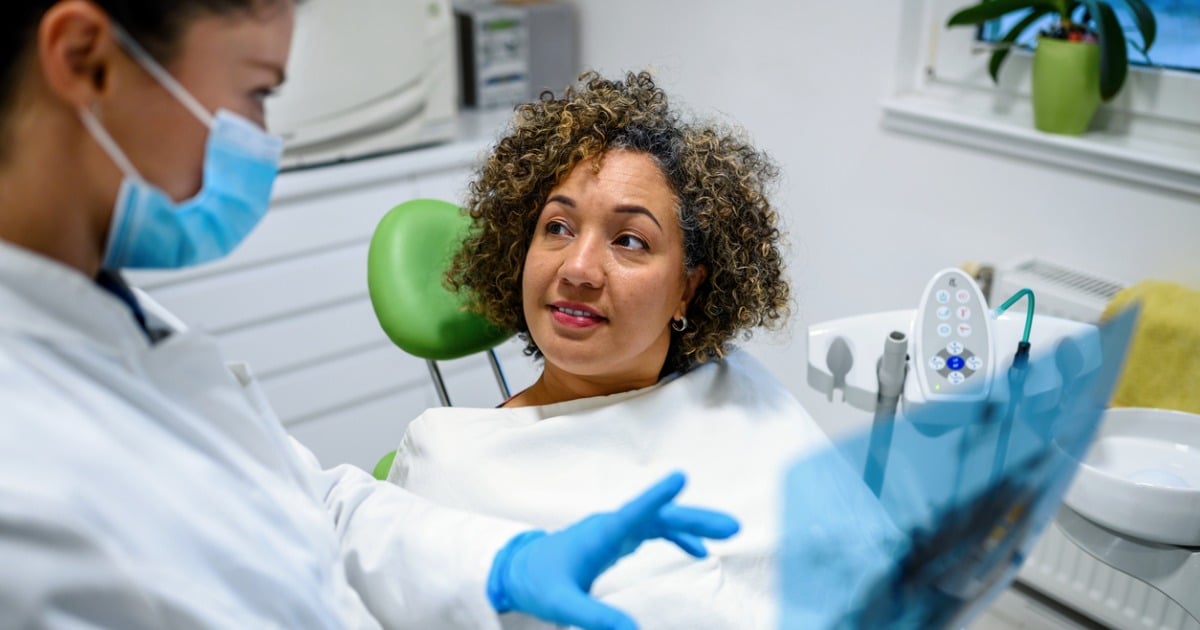May 1, 2024: Article updated to provide the latest progress on the ballot measure.
A proposal that would lock in new funding to increase Medi-Cal dental reimbursement rates, student loan repayments, health care workforce development and other programs is one step closer to qualifying for the November 2024 ballot in California.
A coalition of health care organizations that includes CDA filed the ballot measure last September to improve access to care for generations by protecting and expanding funding for California’s Medi-Cal program. The coalition announced last week that it had collected and submitted more than 800,000 signatures to county officials — a significant step. The campaign expects the signature validation process to be completed by early June, at which point the measure would officially qualify for the November ballot. The campaign needs 546,651 valid voter signatures to qualify.
“Medi-Cal currently provides medical and dental coverage to 15 million low-income Californians, making it the largest provider of medical and dental insurance in the state,” said CDA President Carliza Marcos, DDS, in the coalition’s news release. “After decades of underfunding, this measure will finally provide some long-term, permanent funding solutions we need to provide better care to millions of Californians.”
The coalition’s proposal is built around a “managed care organization” tax on health insurance companies, a revenue source that California has used for years to maximize federal matching funds and draw down billions of extra dollars to support state programs like Medi-Cal. The measure would make the state’s recently renewed MCO tax permanent, dedicate the money for Medi-Cal and specific health programs (as opposed to the state’s general fund like previous MCO taxes), and add Medi-Cal dental reimbursement rates to the list of programs receiving funds starting in 2027.
Passing a ballot measure will mitigate the unpredictability of the annual state budget process and the fluctuations that can result year to year.
Focusing on dental rate increases for restorative and specialty services for adults
The designated funds for Medi-Cal dental services will amount to a 10-15% increase in its total budget, similar to the funding initially allocated under the Proposition 56 tobacco tax, with the added bonus of not being a declining revenue source. The intent is to focus dental rate increases on restorative and specialty services for adults, complementing the increases made through Proposition 56 and the Dental Transformation Initiative several years ago, which primarily targeted prevention and children’s services.
“This is an important opportunity to strengthen the Medi-Cal program for the long term and ensure health care dollars stay in health care,” said CDA past President John Blake, DDS, when the coalition announced the measure last year. “With 15 million Californians relying on Medi-Cal for their health coverage, we need it to be a functional program with stable funding. That’s what this initiative is about. Establishing an ongoing, sustainable funding source like this will help reassure dentists, especially younger dentists, about Medi-Cal’s longer-term viability.”
The measure’s other relevant provisions include new student loan repayment funds for dentists and physicians and funds to expand education and training to increase the number of health care workers. The coalition, which is composed of physicians, dentists, community health centers, Planned Parenthood, emergency responders, health insurance plans and health care workers, will also focus on additional key provisions, such as increased funding for mental health programs and for state production of prescription drugs like insulin at lower cost.
CDA will keep members updated on the measure’s progress and ways to help with the campaign.

